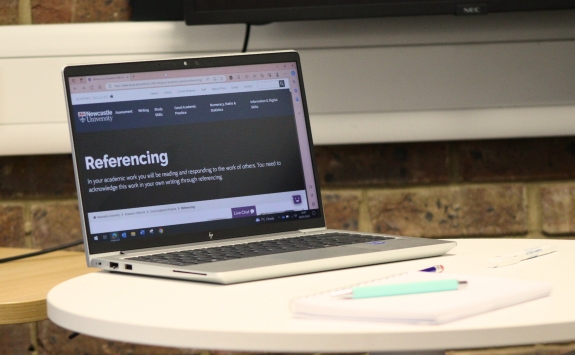For some, referencing can be one of the most daunting parts of starting any degree, particularly for those who may have never come across it during sixth form or college. However, at University, referencing is a crucial part of receiving and maintaining high marks, as well as ensuring you do not commit plagiarism of others’ work or some of your own previous material.
When I first started university, I initially felt quite confident in my ability to reference correctly since I had done it numerous times during sixth form for both my coursework and my Extended Project (EPQ). However, I soon quickly realised that there was now a lot more importance being put on the possibility of plagiarism than there had been before. I first made the common mistake of using a referencing generator to cite all my sources for me, and while these programs/websites are super helpful and can massively speed up the process of referencing, they are also known to get it quite wrong. This is exactly why on my first proper piece of writing I did not get a particularly high grade as I continuously failed to cite my sources or reference properly. And while I was disheartened at first, I did eventually realise that I would rather it happened at the start than get to the end of the first year not really understanding where I kept going wrong.

As such, I had to start from scratch and re-learn everything I knew about referencing, as well as come up with a whole new approach. Firstly, while I hate the time it takes, I now reference my sources as I go along, rather than wait to do it all once I’ve finished an essay. This allows me to make sure I remember to cite all the examples I’ve used and not miss any out. Likewise, I now also handwrite all of my bibliography sources to ensure that I don’t miss out on any crucial details: it can be a very tedious activity but since I have started doing this I’ve found I’ve had no issues or feedback on any of my referencing.
Overall, referencing might be one of the less interesting parts of your degree and will often feel like you’ll never get it right. But I can assure you that with a bit of practice and lots of time, it will become second nature to you and won’t feel as daunting as it once did.

Here are my top four tips to remember when referencing:
- Always check your assessment details/module handbook to see if your referencing is included in the word count.
- In most cases, academic sources and websites like JSTOR will have a cite button where you can copy and paste the citation style you want straight into your bibliography.
- Try not to leave it until the end of the assignment to reference, it takes more time and you are far more likely to miss out on certain citations.
- Remember to order your bibliography according to the referencing style you’re using, which is usually in alphabetical order by surname.
Written by Charlotte, a BA Politics and International Relations student



